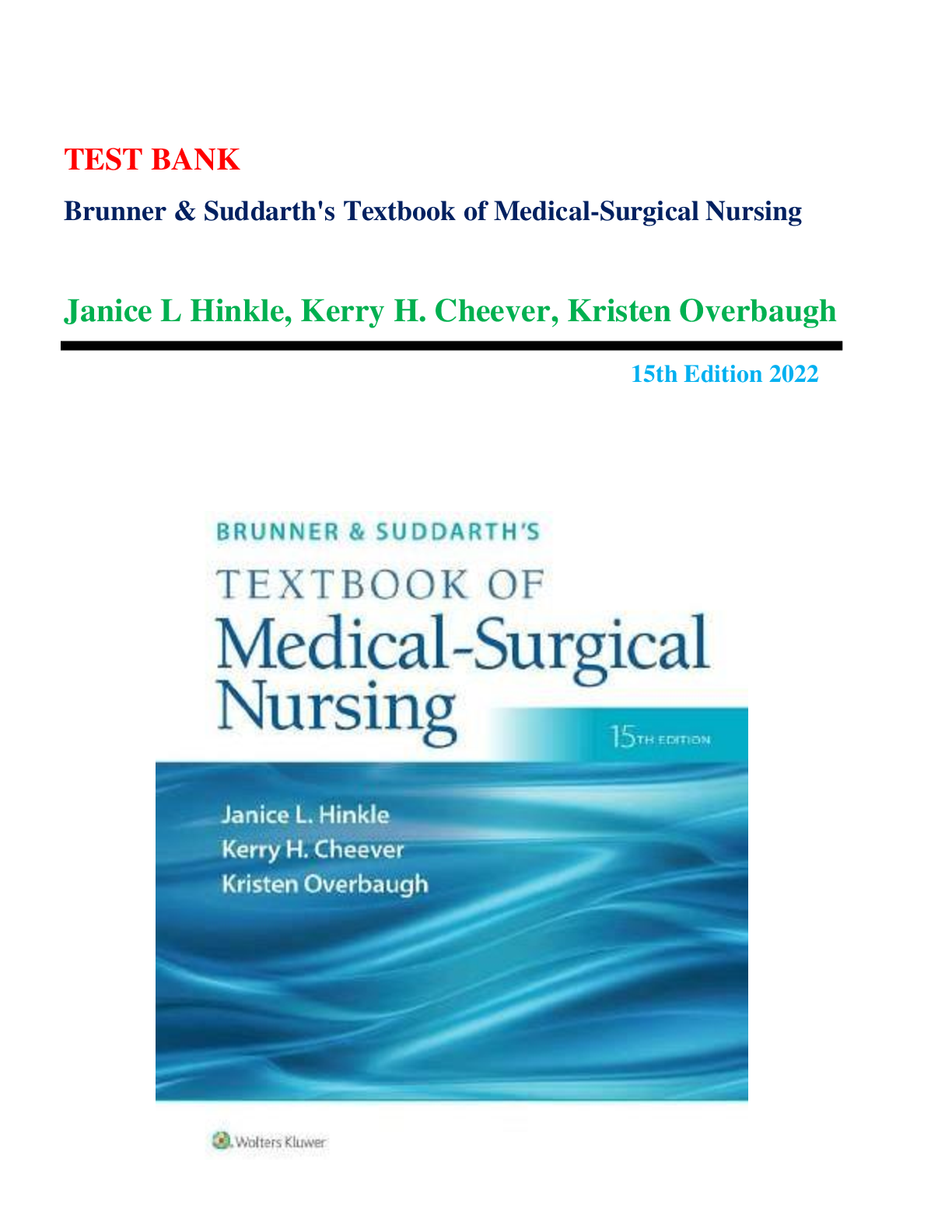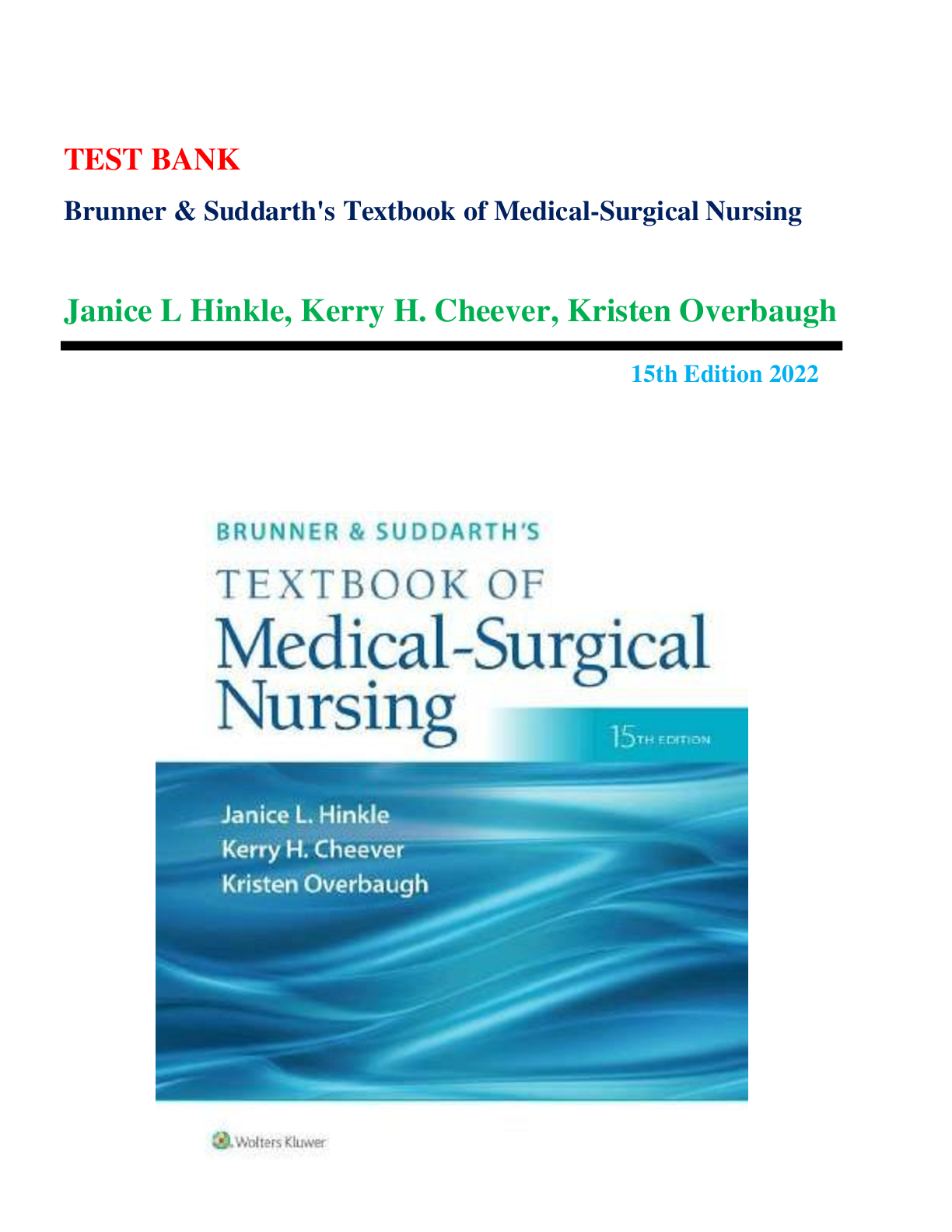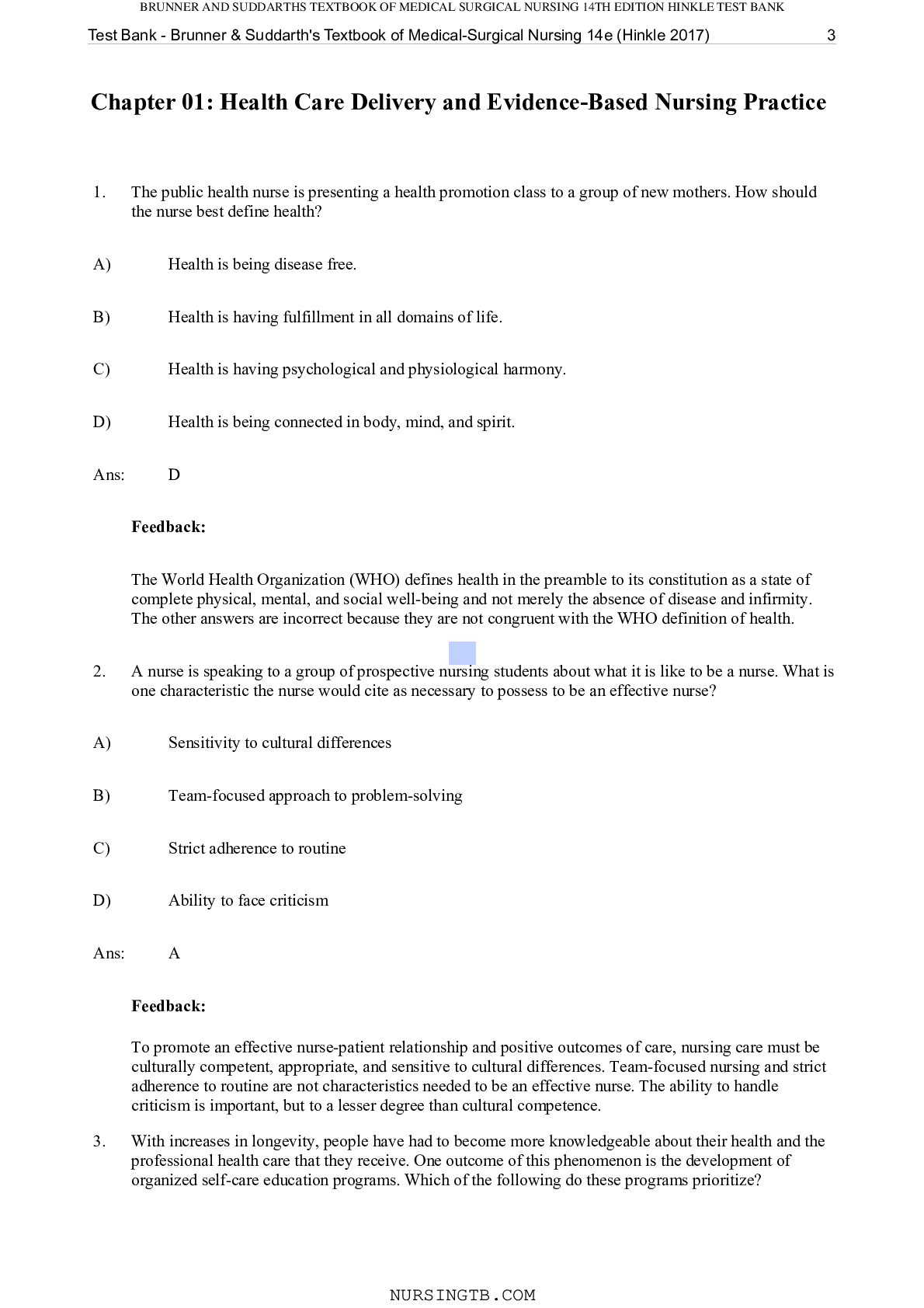*NURSING > TEST BANK > Test Bank - Brunner & Suddarth's Textbook of Medical-Surgical Nursing 14e (Hinkle 2017) (All)
Test Bank - Brunner & Suddarth's Textbook of Medical-Surgical Nursing 14e (Hinkle 2017)
Document Content and Description Below
Chapter 06: Individual and Family Homeostasis, Stress, and Adaptation 1. A nurse is meeting with a young woman who has recently lost her job after moving with her husband to a new city. ... She describes herself as being anxious and pretty depressed. What principle of stress and adaptation should be integrated into the nurses plan of care for this patient? A) Adaptation often fails during stressful events and results in homeostasis. B) Stress is a part of all lives, and, eventually, this young woman will adapt. C) Acute anxiety and depression can be adaptations that alleviate stress in some individuals. D) An accumulation of stressors can disrupt homeostasis and result in disease. 2. You are the nurse caring for an adult patient who has just received a diagnosis of prostate cancer. The patient states that he will never be able to cope with this situation. How should you best understand the concept of coping when attempting to meet this patients needs? A) Coping is a physiologic measure used to deal with change, and he will physically adapt. B) Coping is composed of the physiologic and psychological processes that people use to adapt to change. C) Coping is the human need for faith and hope, both of which create change. D) Coping is a social strategy that is used to deal with change and loss. process. Coping is both a physiologic and psychological process used to adapt to change. Coping is a personal process used to adapt to change. 3. The nurse is with a patient who has learned that he has glioblastoma multiforme, a brain tumor associated with an exceptionally poor prognosis. His heart rate increases, his eyes dilate, and his blood pressure increases. The nurse recognizes these changes as being attributable to what response? A) Part of the limbic system response B) Sympathetic nervous response C) Hypothalamic-pituitary response D) Local adaptation syndrome 4. You are the nurse caring for a 72-year-old woman who is recovering from a hemicolectomy on the postsurgical unit. The surgery was very stressful and prolonged, and you note on the chart that her blood sugars are elevated, yet diabetes does not appear in her previous medical history. To what do you attribute this elevation in blood sugars? A) It is a temporary result of increased secretion of antidiuretic hormone. B) She must have had diabetes prior to surgery that was undiagnosed. C) She has suffered pancreatic trauma during her abdominal surgery. D) The blood sugars are probably a result of the fight-or-flight reaction. 5. A patient tells the nurse that she does not like to go to the doctor and is feeling anxious about being in this place. When the nurse checks her blood pressure, it is elevated along with her heart rate. The nurse rechecks her blood pressure about 10 minutes later and it is normal. The patient asks the nurse if she should be concerned that she may have hypertension. What statement should guide the nurses response? A) She should not worry; it was stress related and her regular blood pressure is good. B) The first blood pressure was part of a simple stress response; our long-term blood pressure is controlled by negative feedback systems. C) Blood pressure is only one measure of hypertension; she should review this with the doctor and plan to recheck it on a regular basis. D) The respiratory infection is the probably the cause of the elevated blood pressure, and, with treatment, her blood pressure should remain normal. 6. A patient presents to the health center and the nurse practitioners assessment reveals an enlarged thyroid. The nurse practitioner believes the thyroid cells may be undergoing hyperplasia. How would the nurse practitioner explain this condition to the patient? A) Hyperplasia is the abnormal decrease in cell and organ size and is a precursor to cancer. B) Hyperplasia is an abnormal increase in new cells and is reversible with the stimulus for cell growth removed. C) Hyperplasia is the change in appearance of the thyroid due to a chronic irritation and will reverse with the stimulus removed. D) Hyperplasia is a cancerous growth and will be removed surgically. . 7. A mother has brought her young son to the emergency department (ED). The mother tells the triage nurse that the boy was stung by a bee about an hour ago. The mother explains to the nurse, It hurts him so bad and it looks swollen, red, and infected. What can the triage nurse teach the mother? A) The pain, redness, and swelling are part of the inflammatory process, but it is probably too early for an infection. B) Bee stings frequently cause infection, pain, and swelling, and, with treatment, the infection should begin to subside late today. C) The infection was probably caused by the stinger, which may still be in the wound. D) The mothers assessment is accurate and the ED doctor will probably prescribe antibiotics to fix the problem. .....................................................................................continued................................................................................... [Show More]
Last updated: 1 year ago
Preview 1 out of 101 pages
.png)
Reviews( 0 )
Document information
Connected school, study & course
About the document
Uploaded On
Oct 11, 2022
Number of pages
101
Written in
Additional information
This document has been written for:
Uploaded
Oct 11, 2022
Downloads
0
Views
46

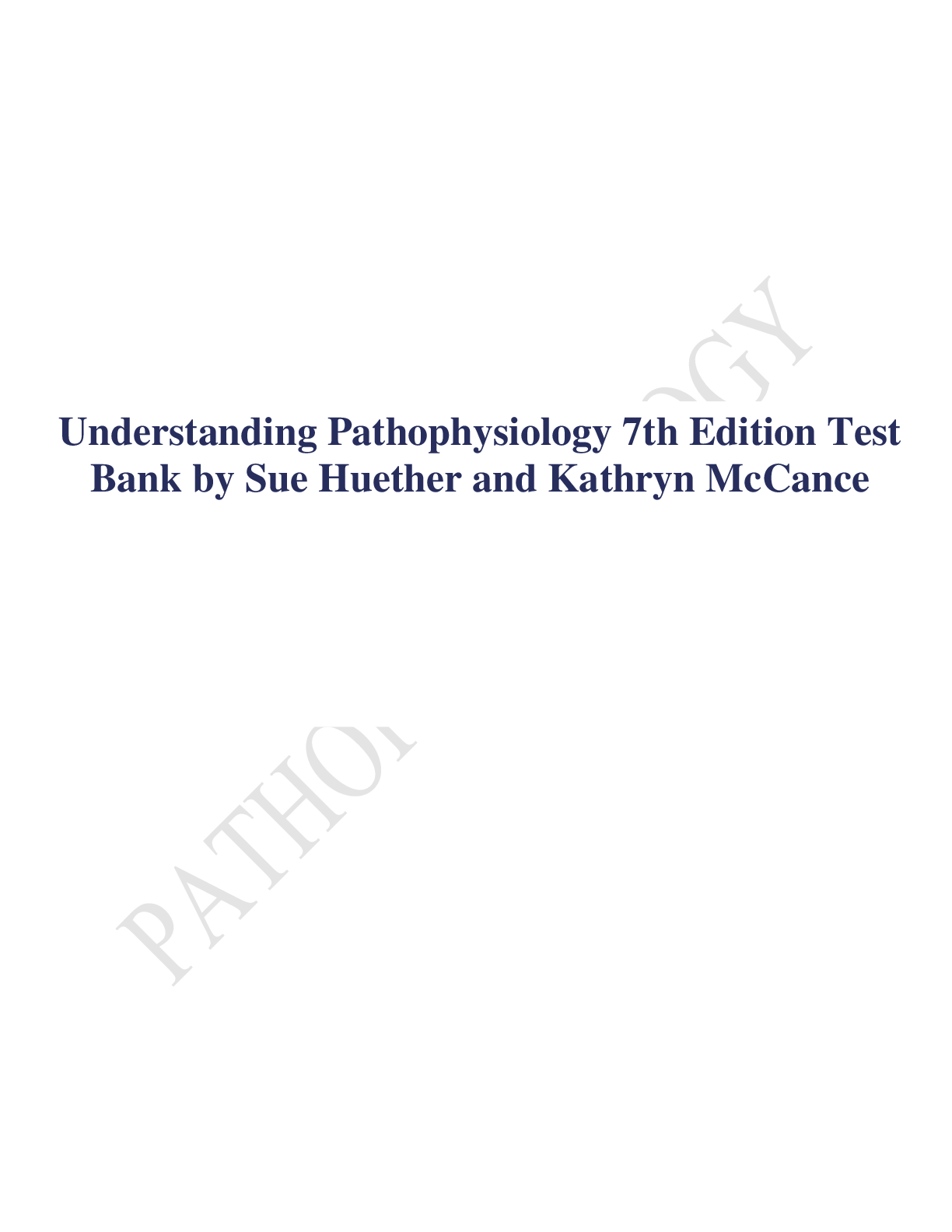
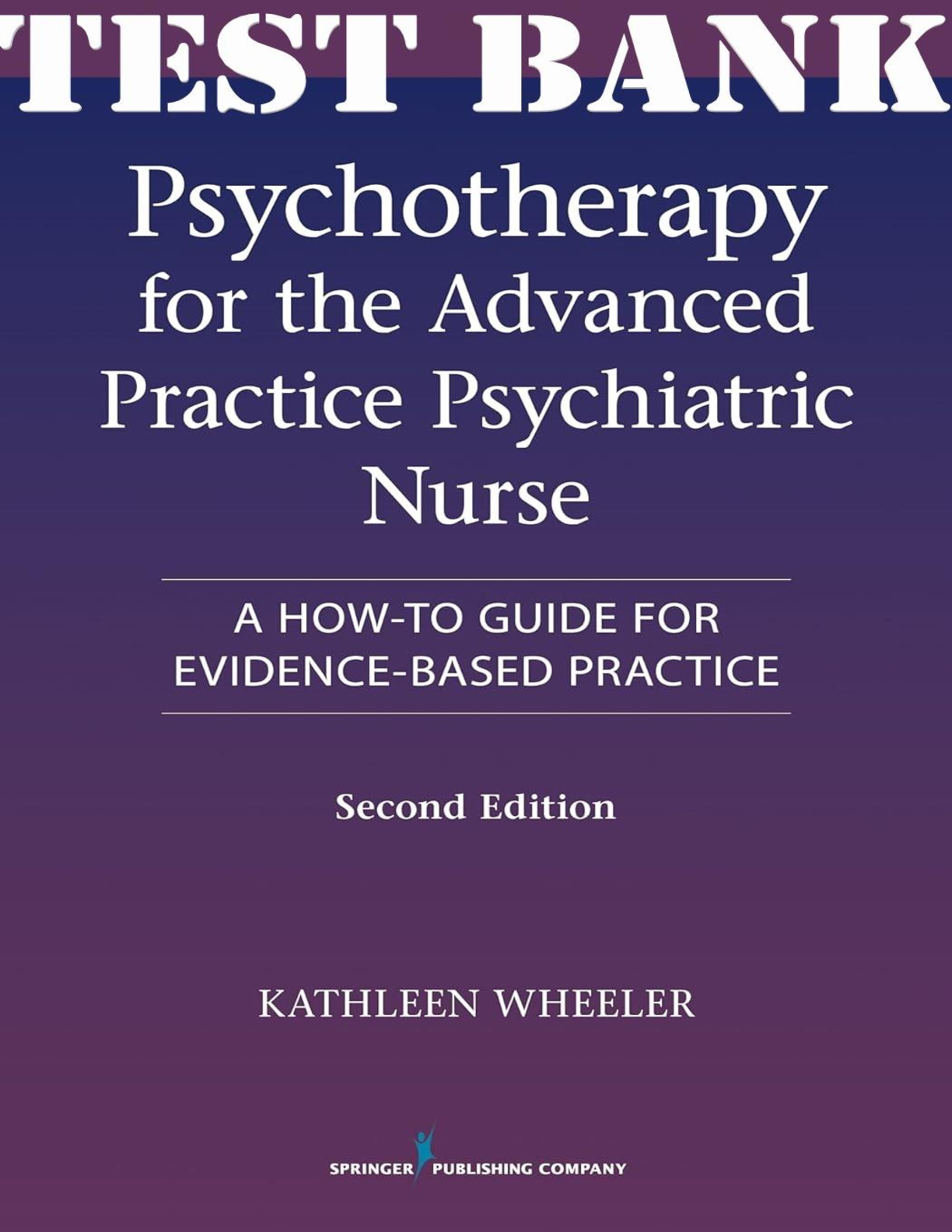
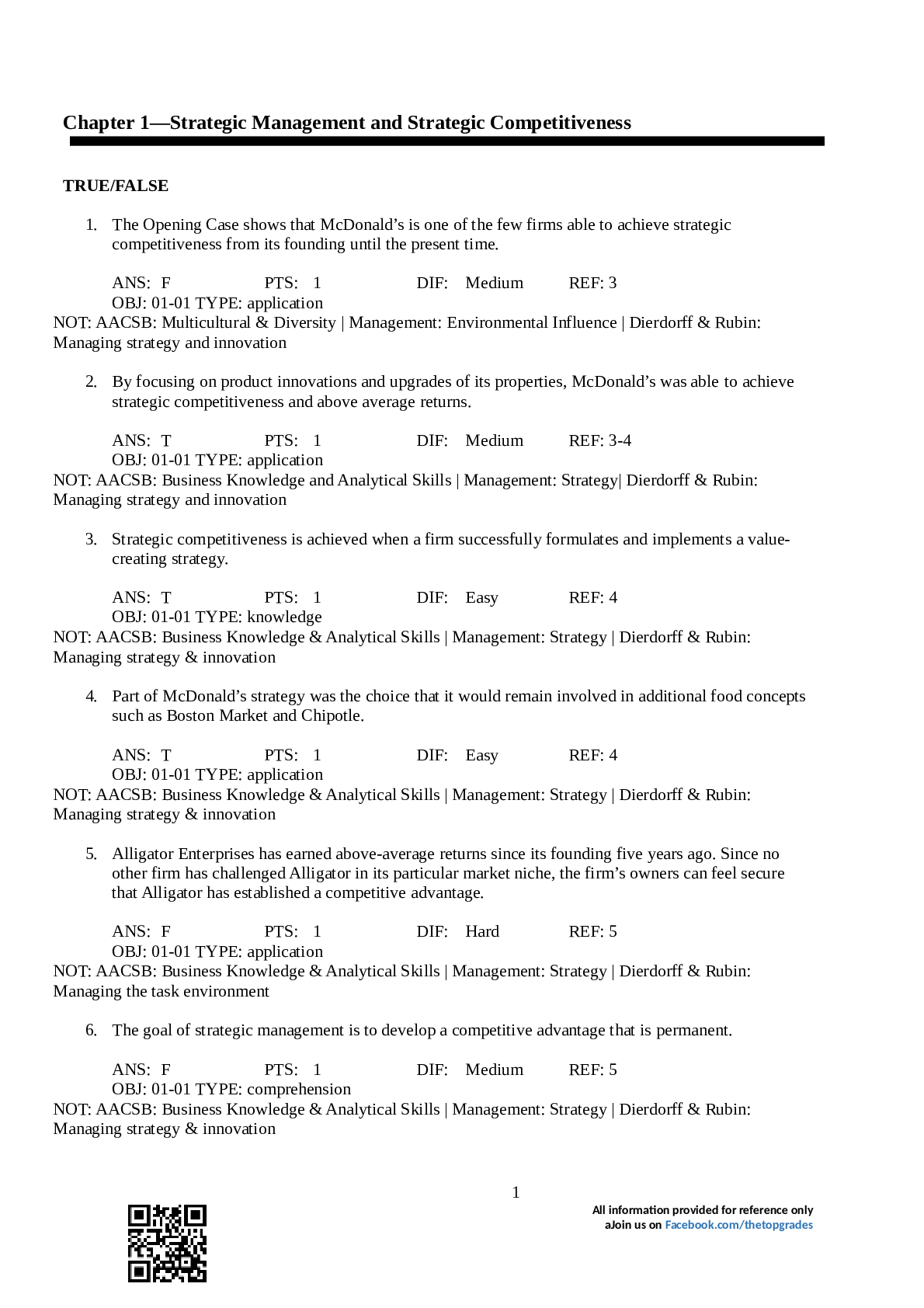
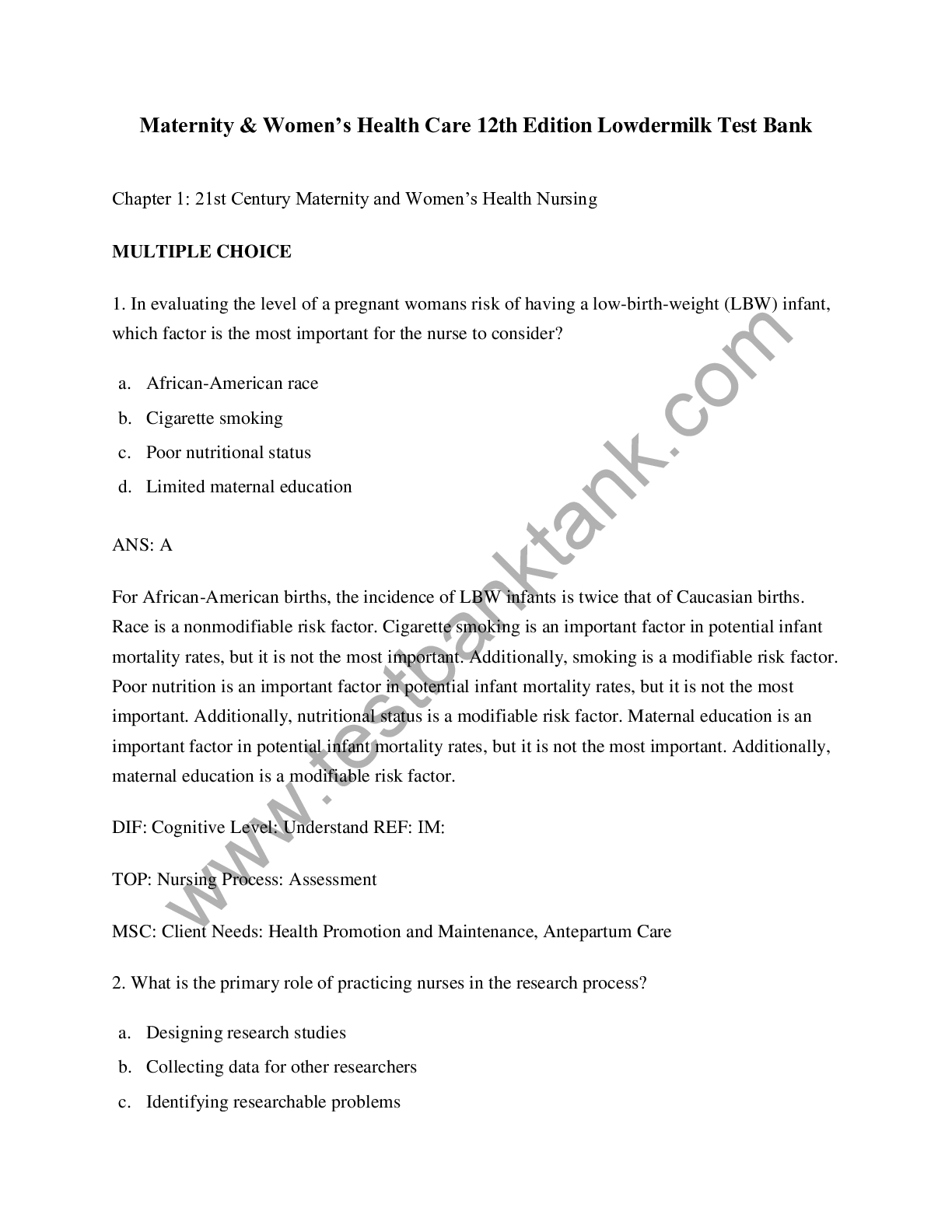
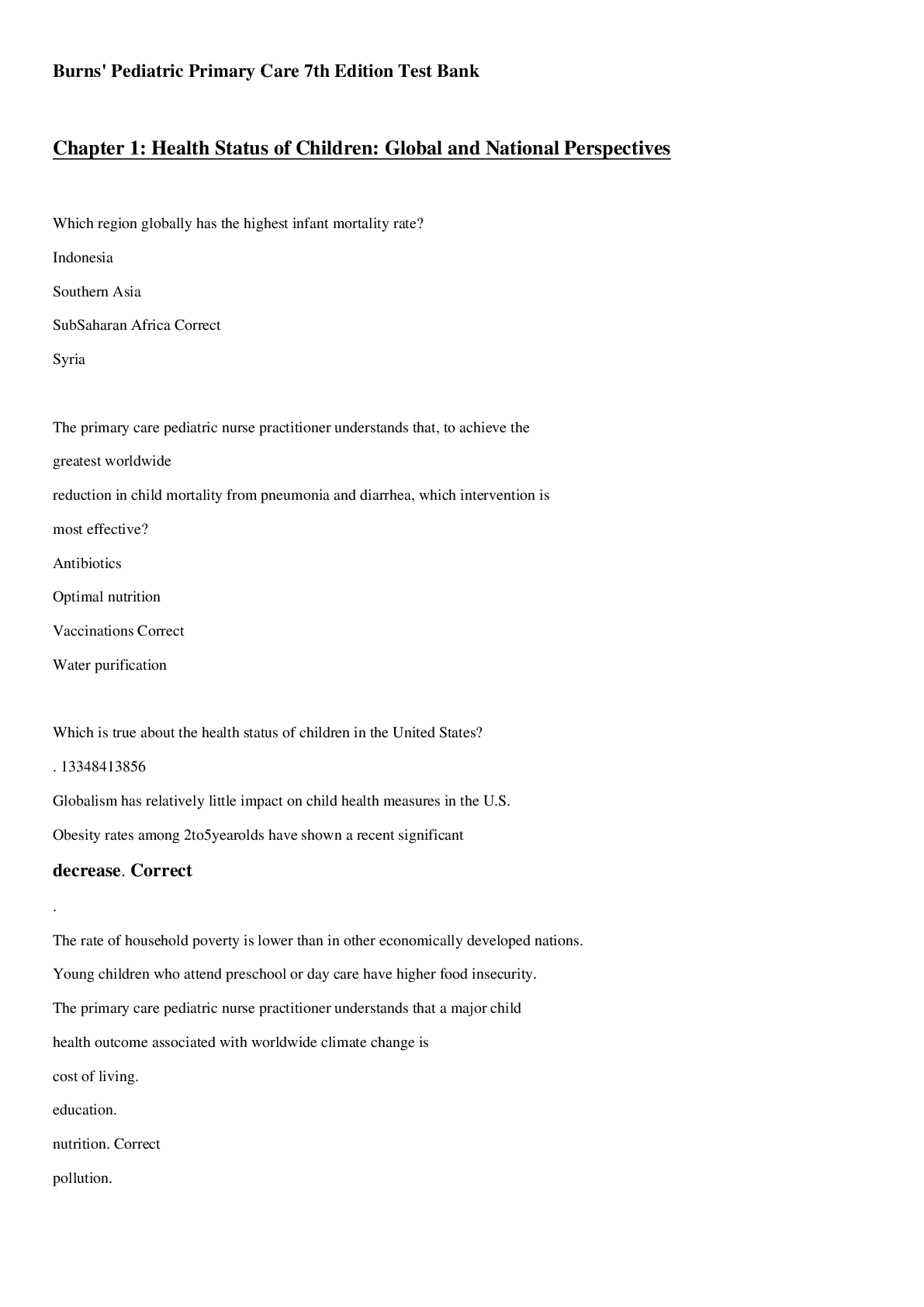



 (1).png)
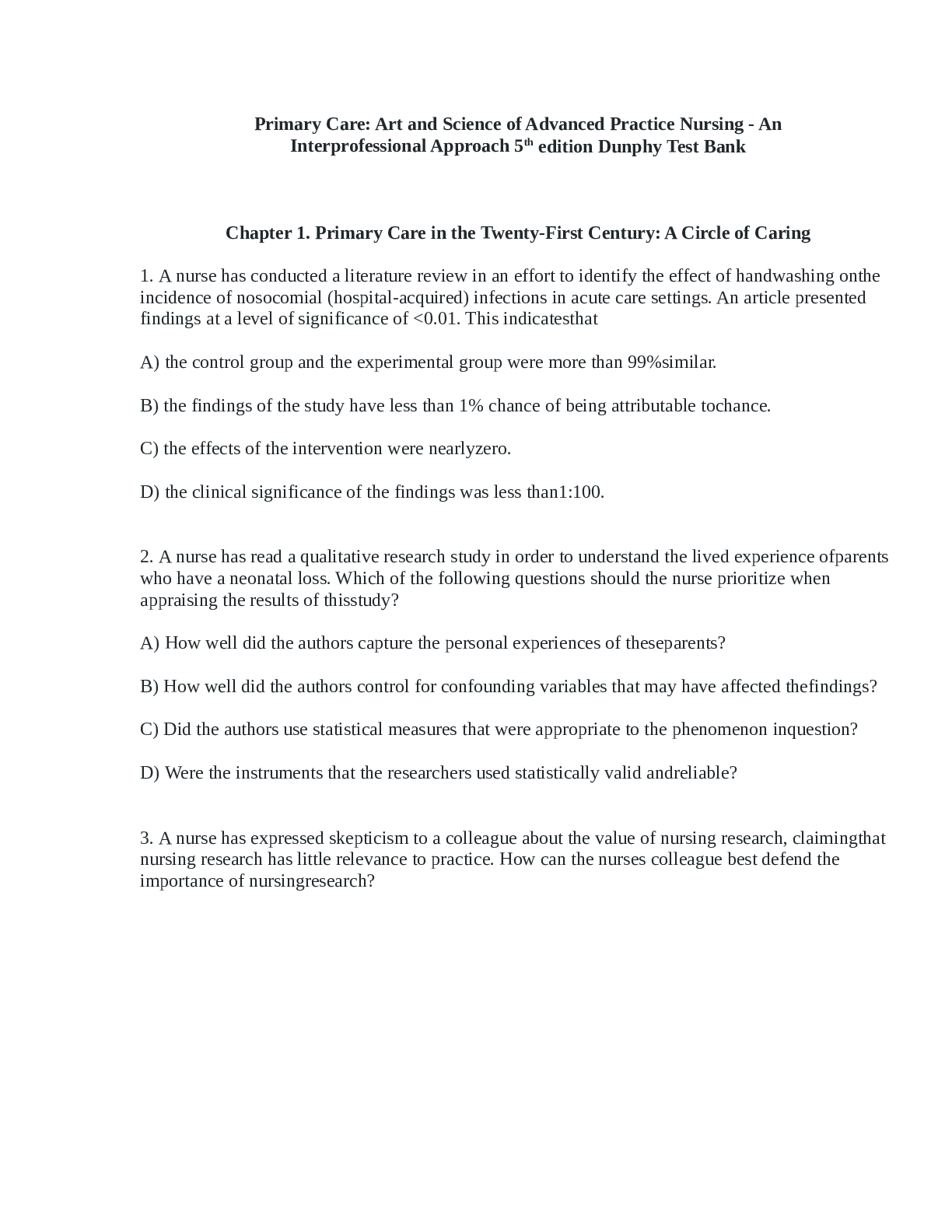
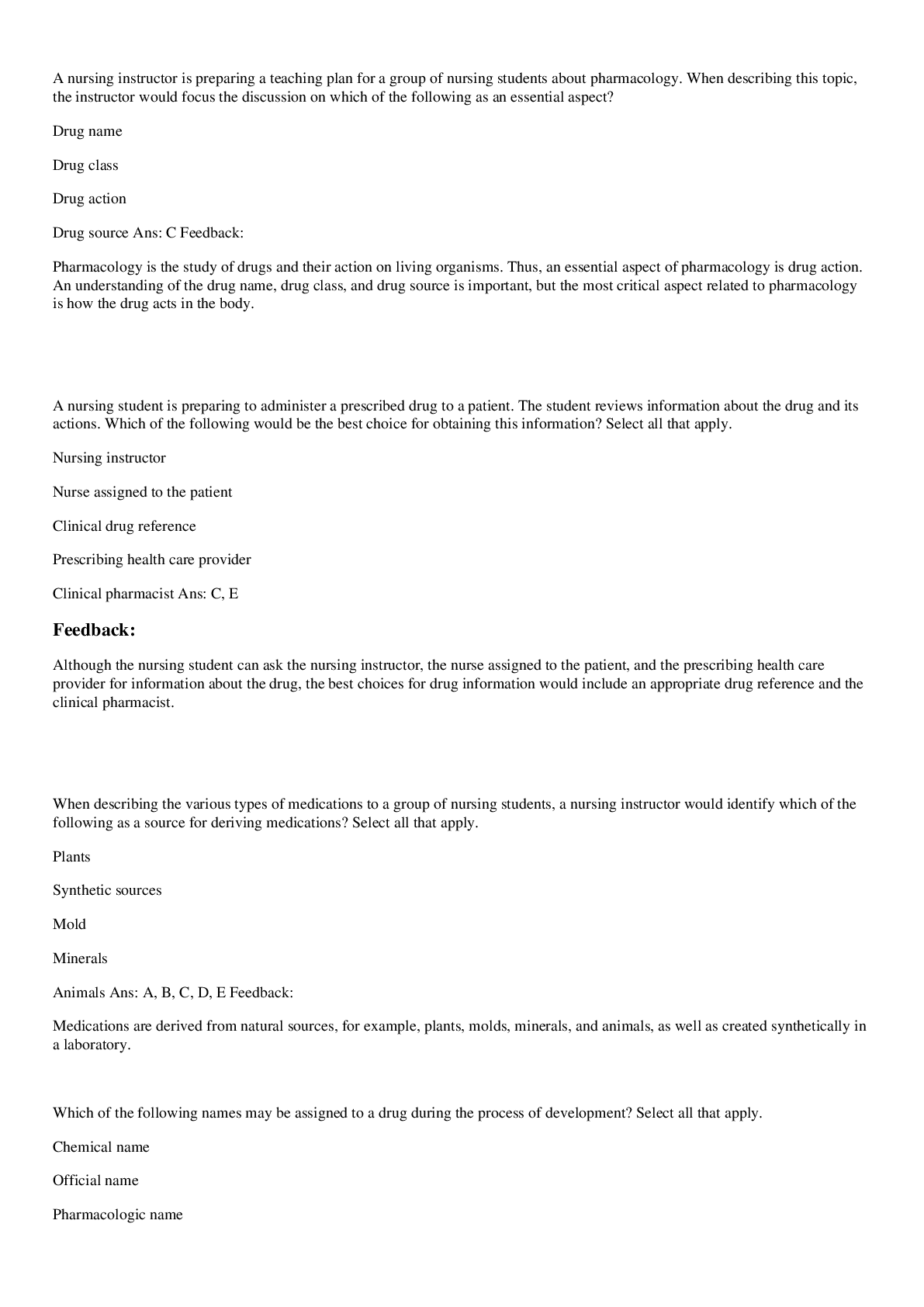
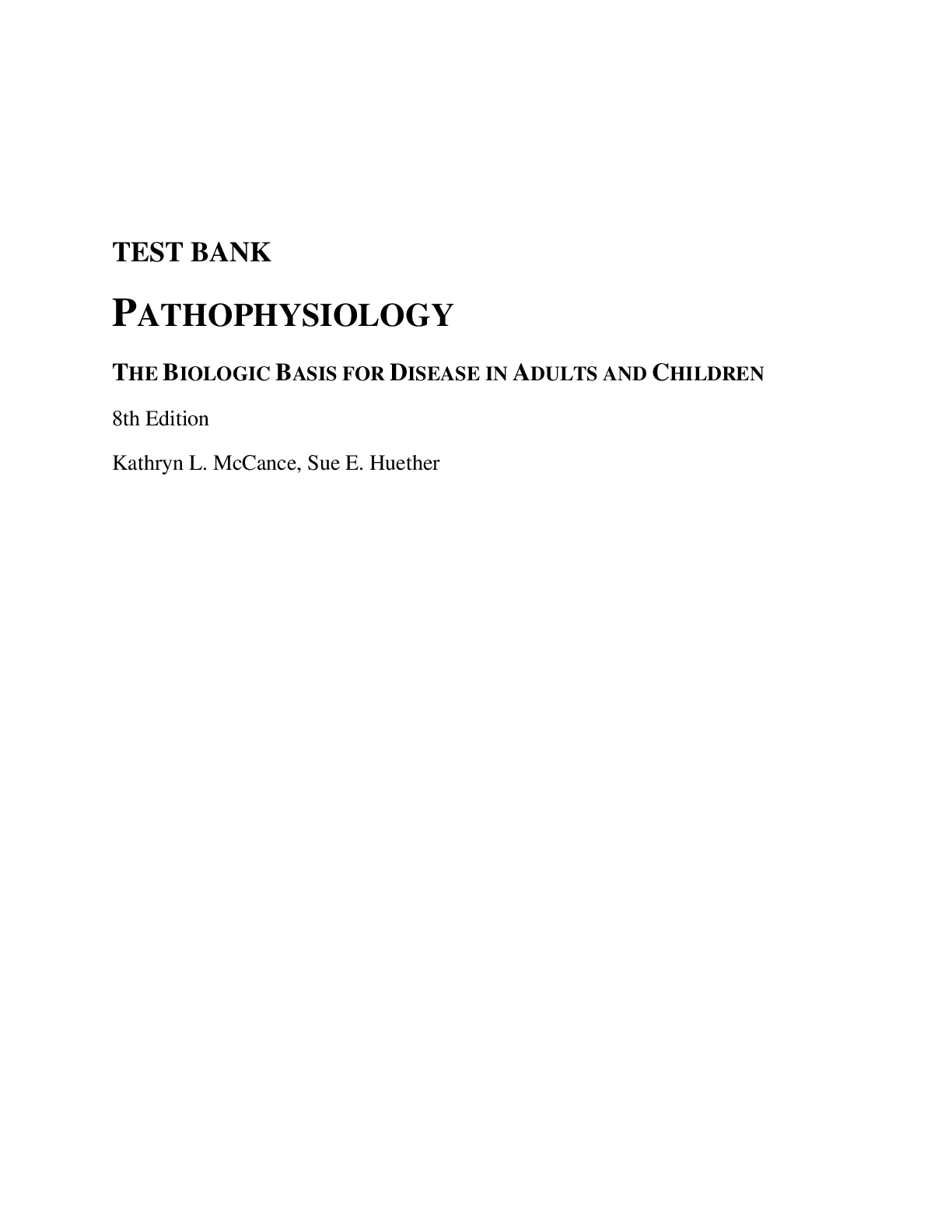
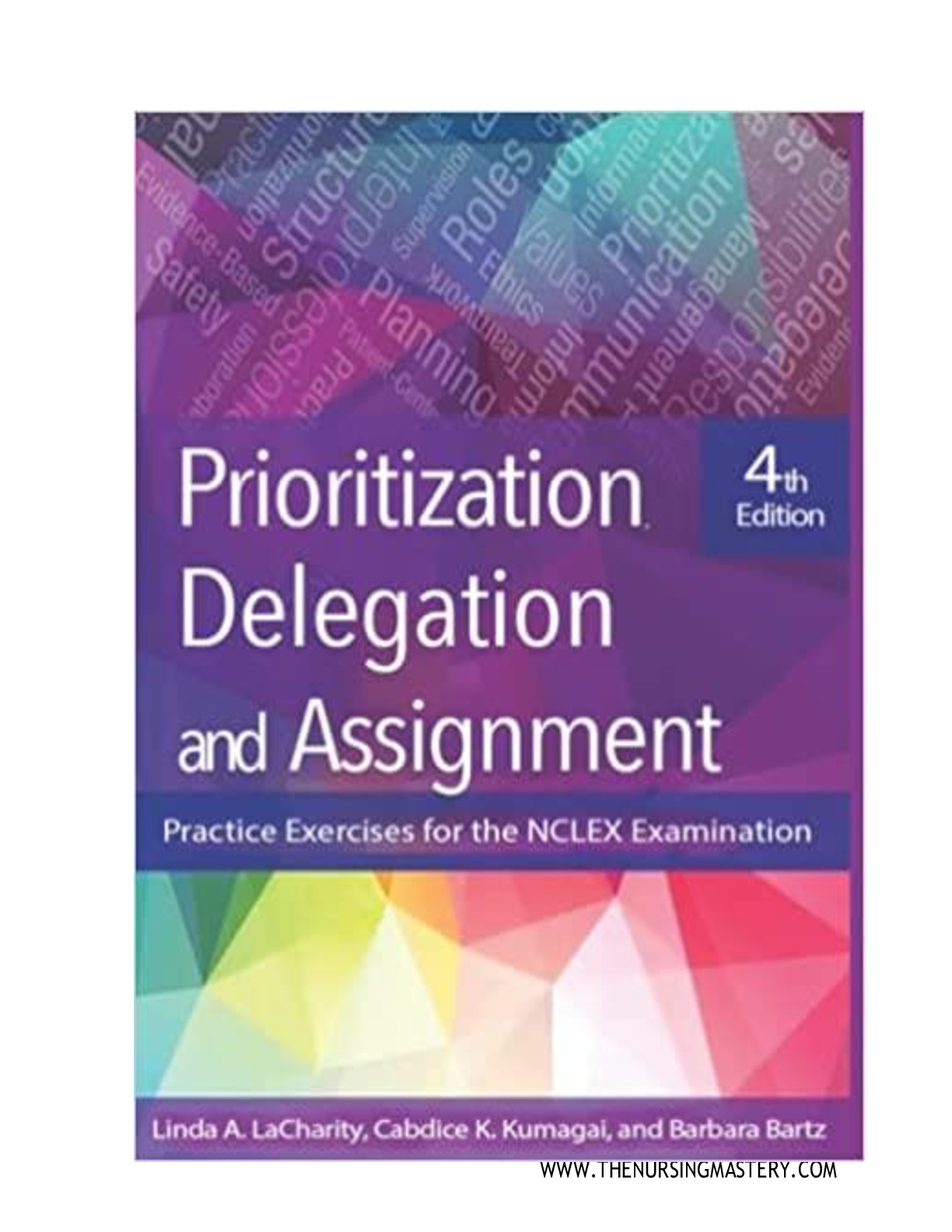
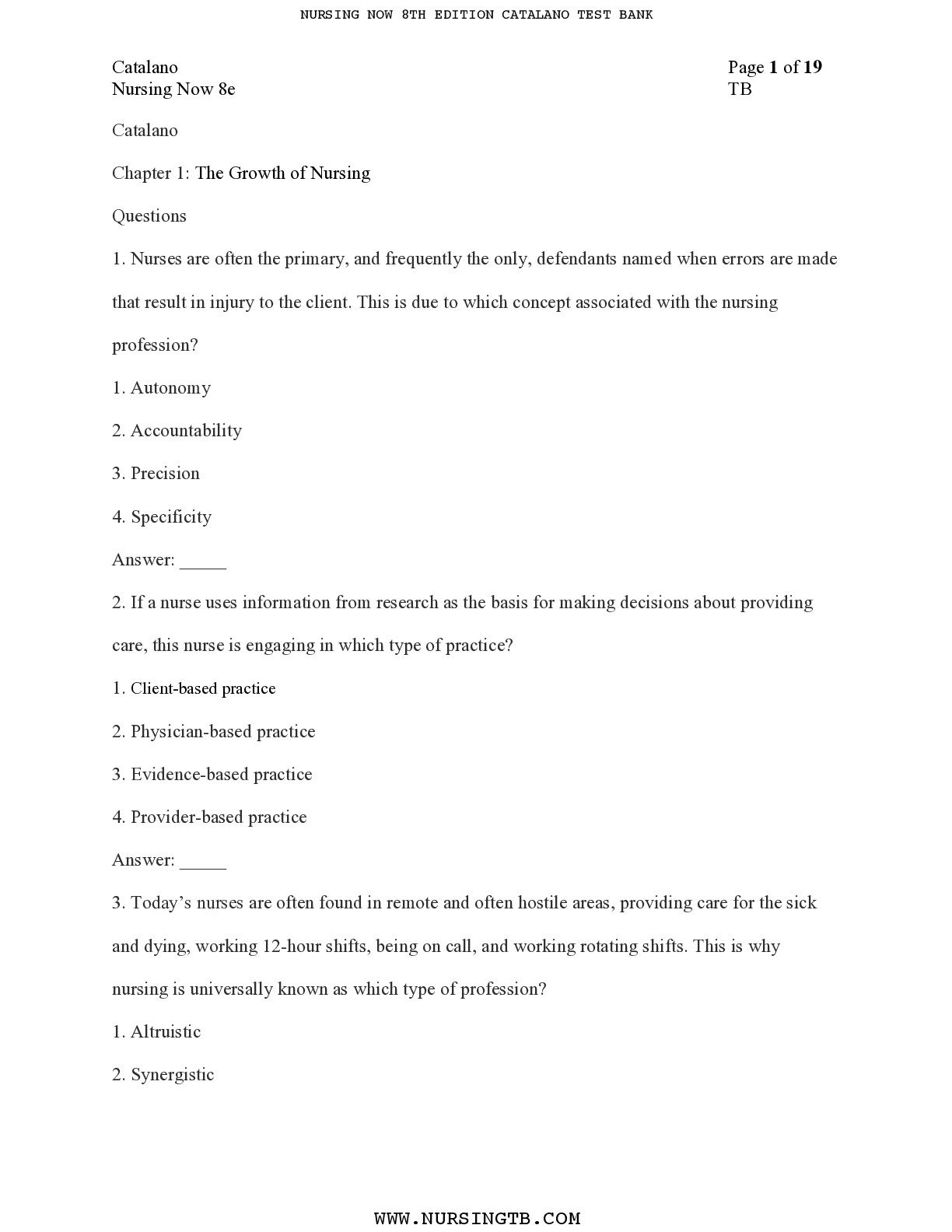

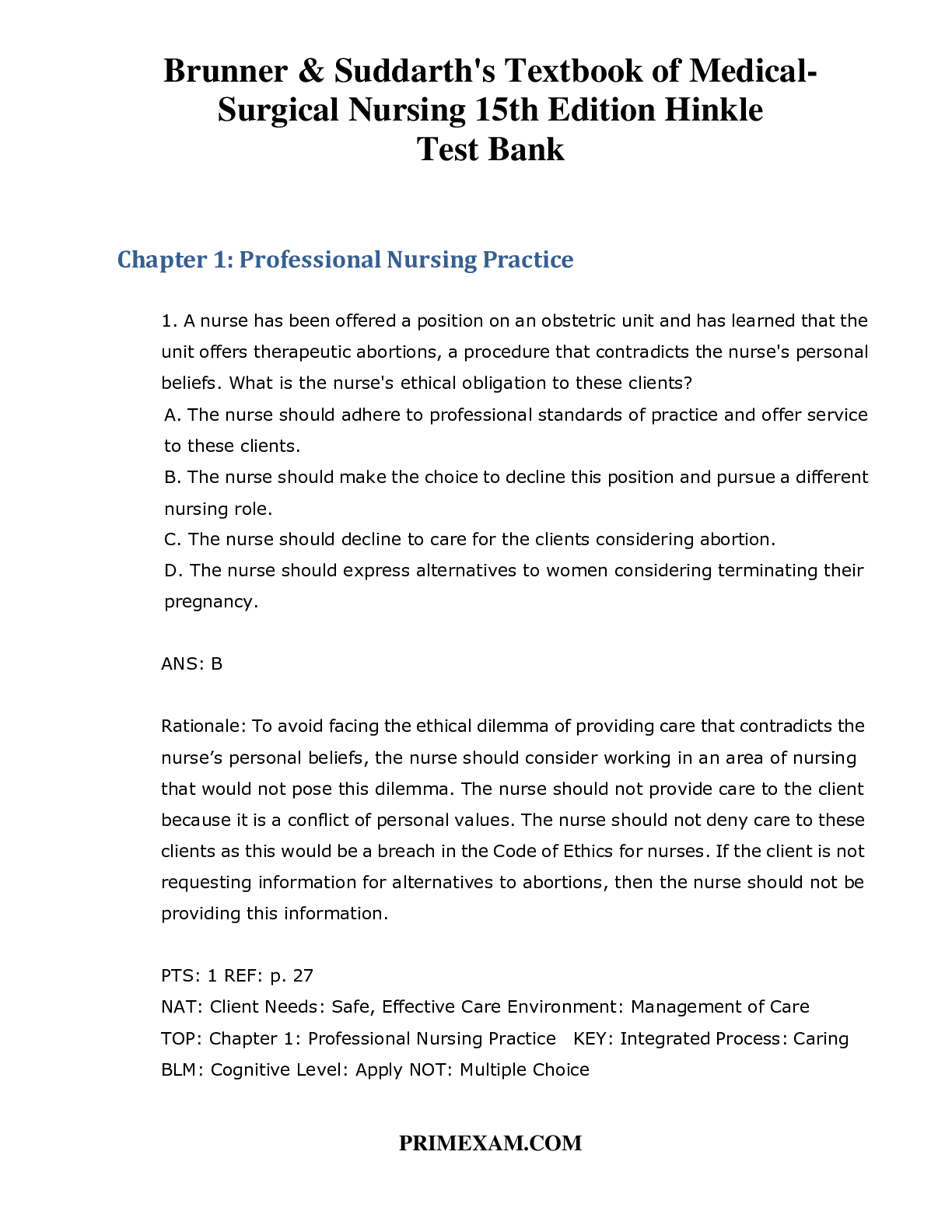
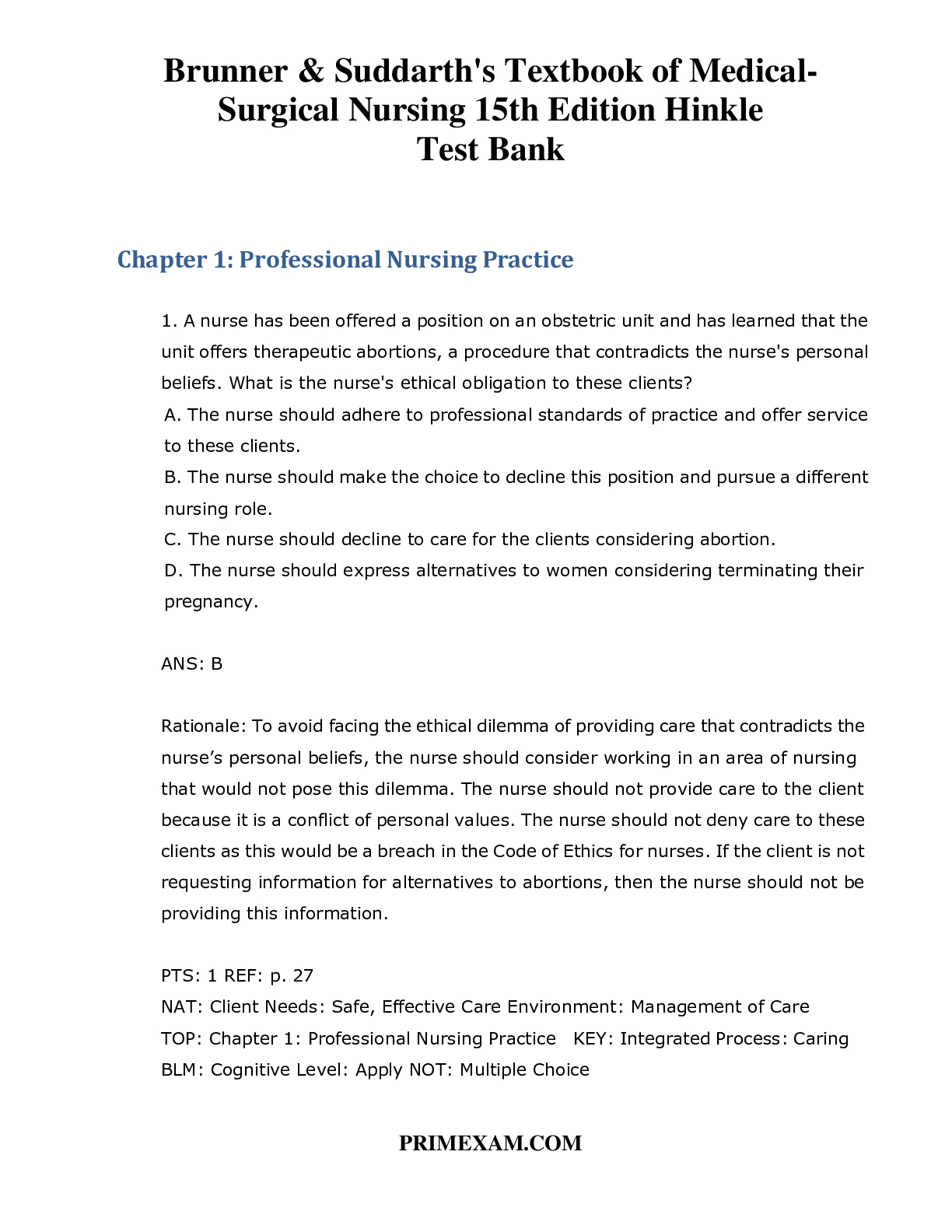
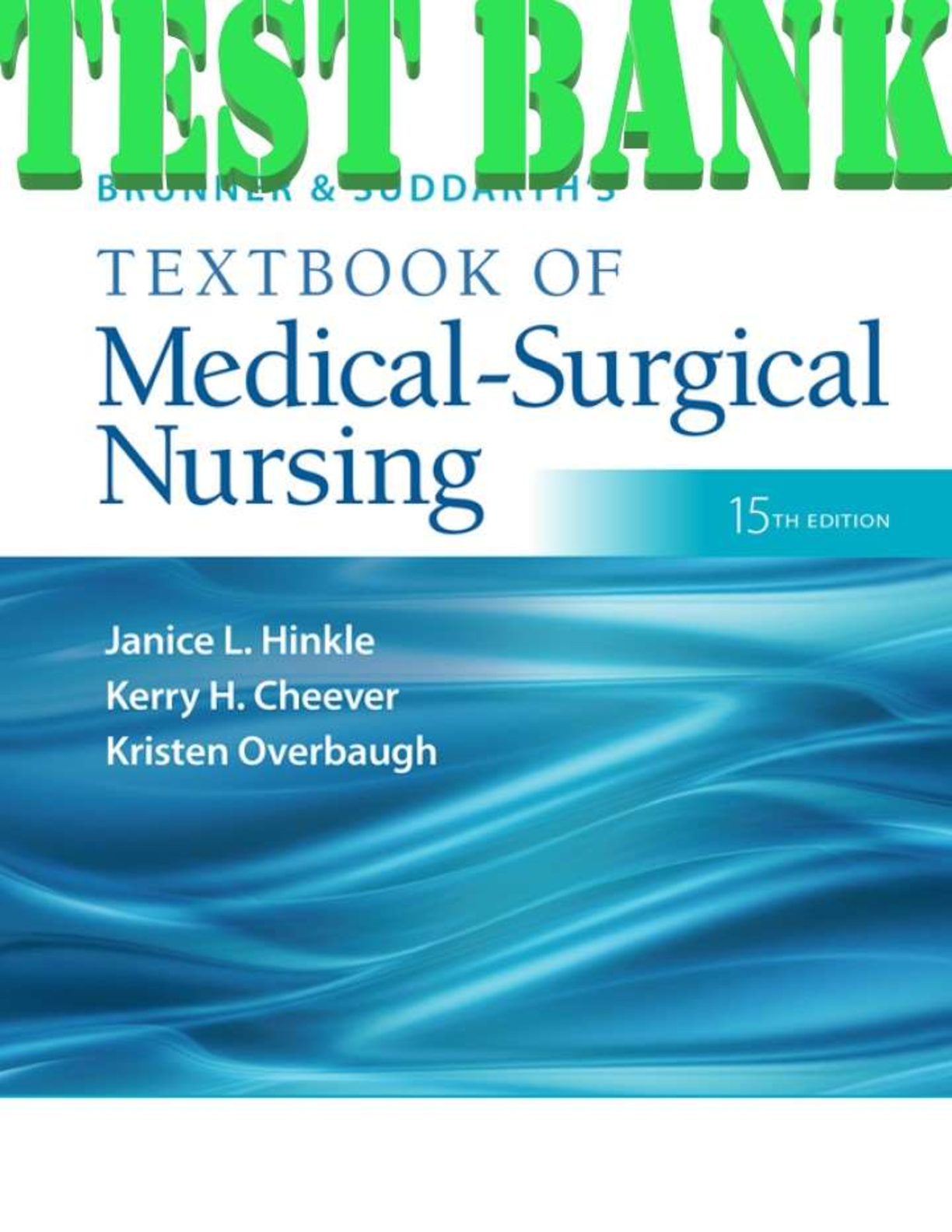
.png)
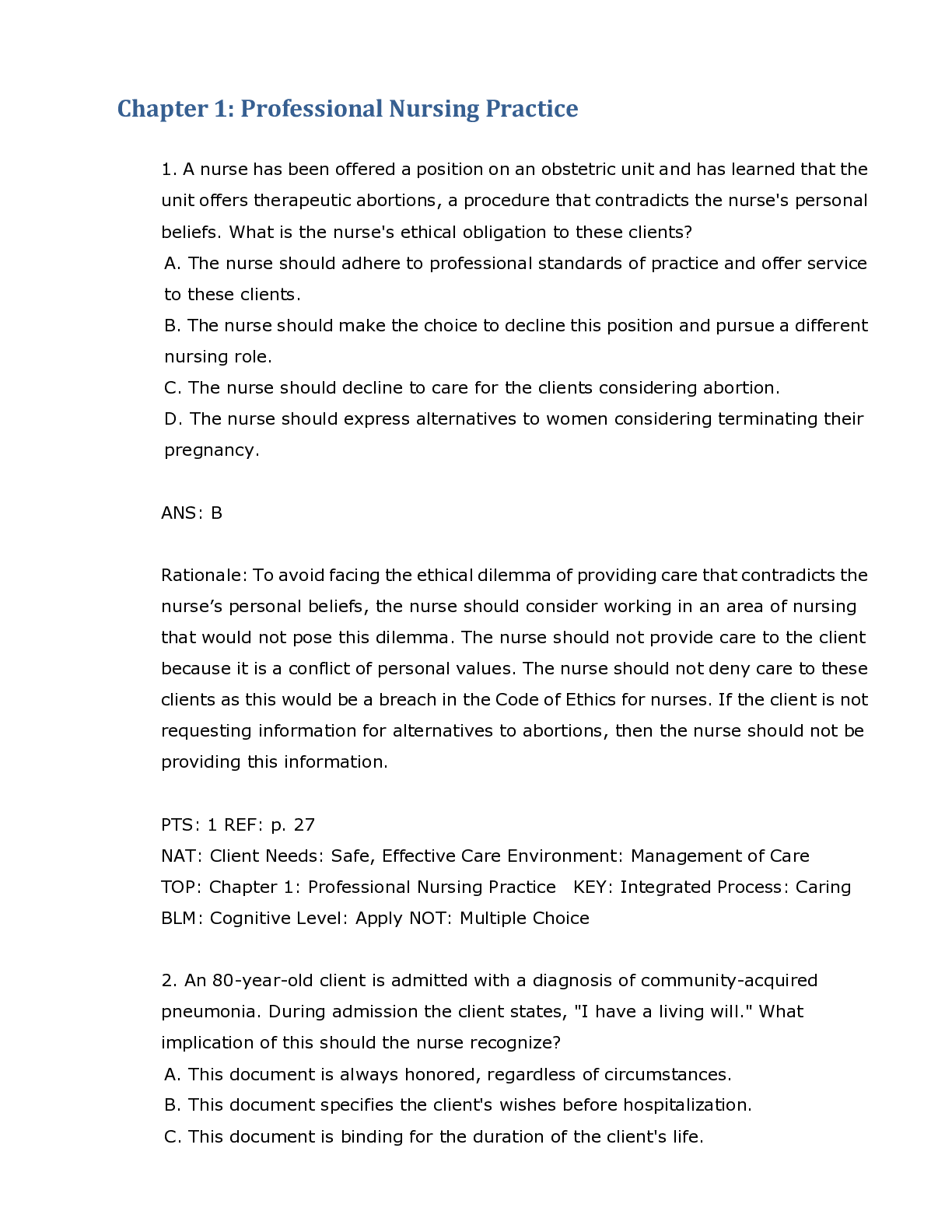
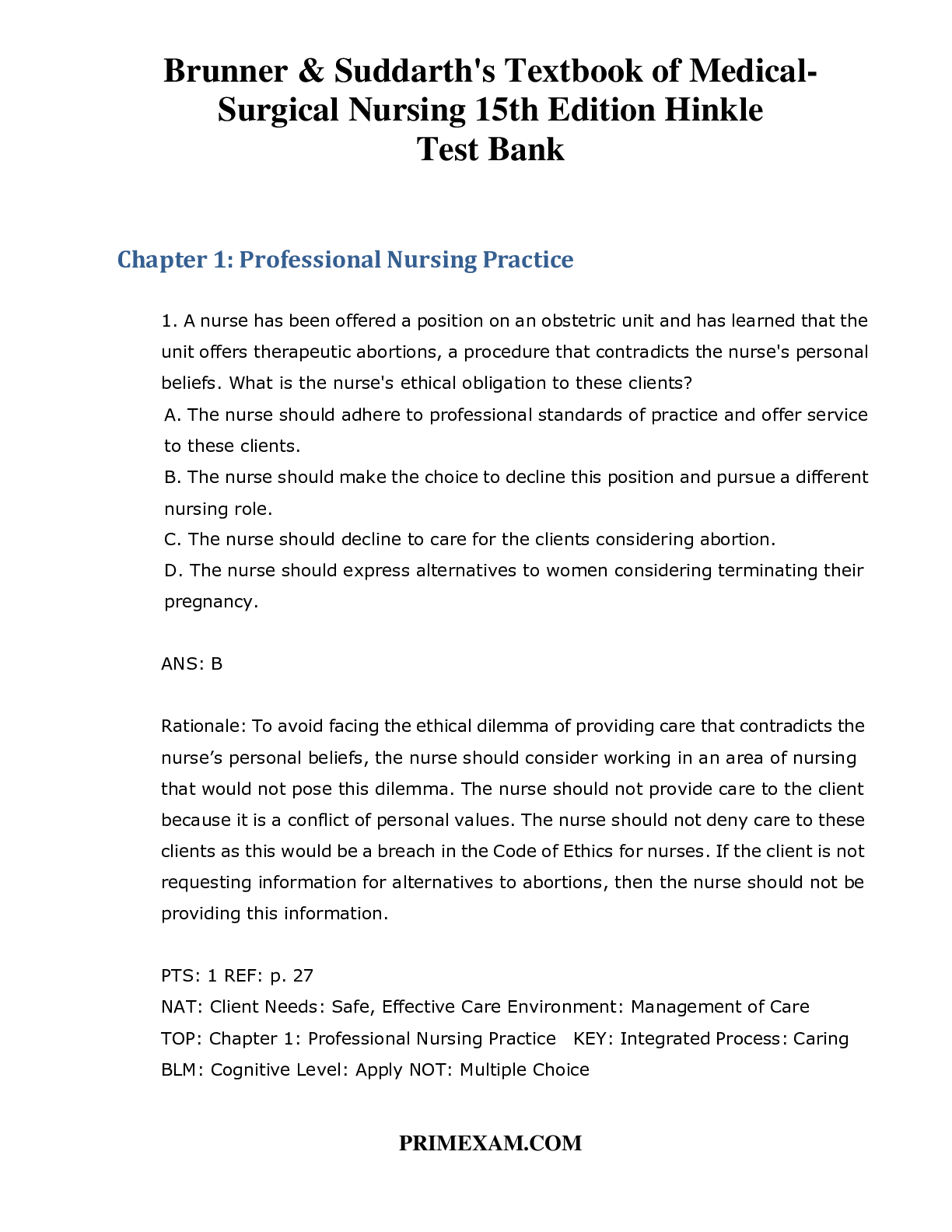
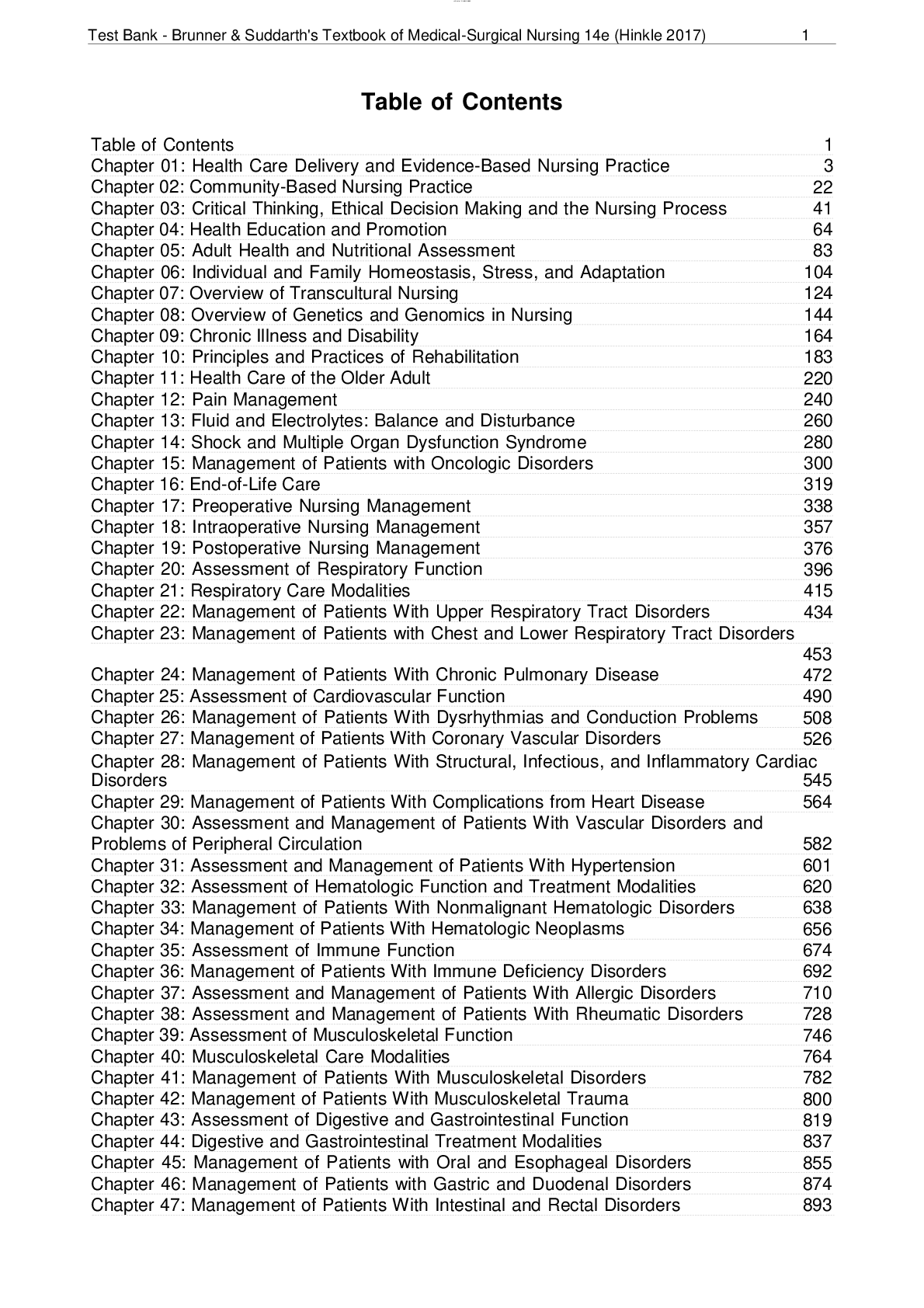
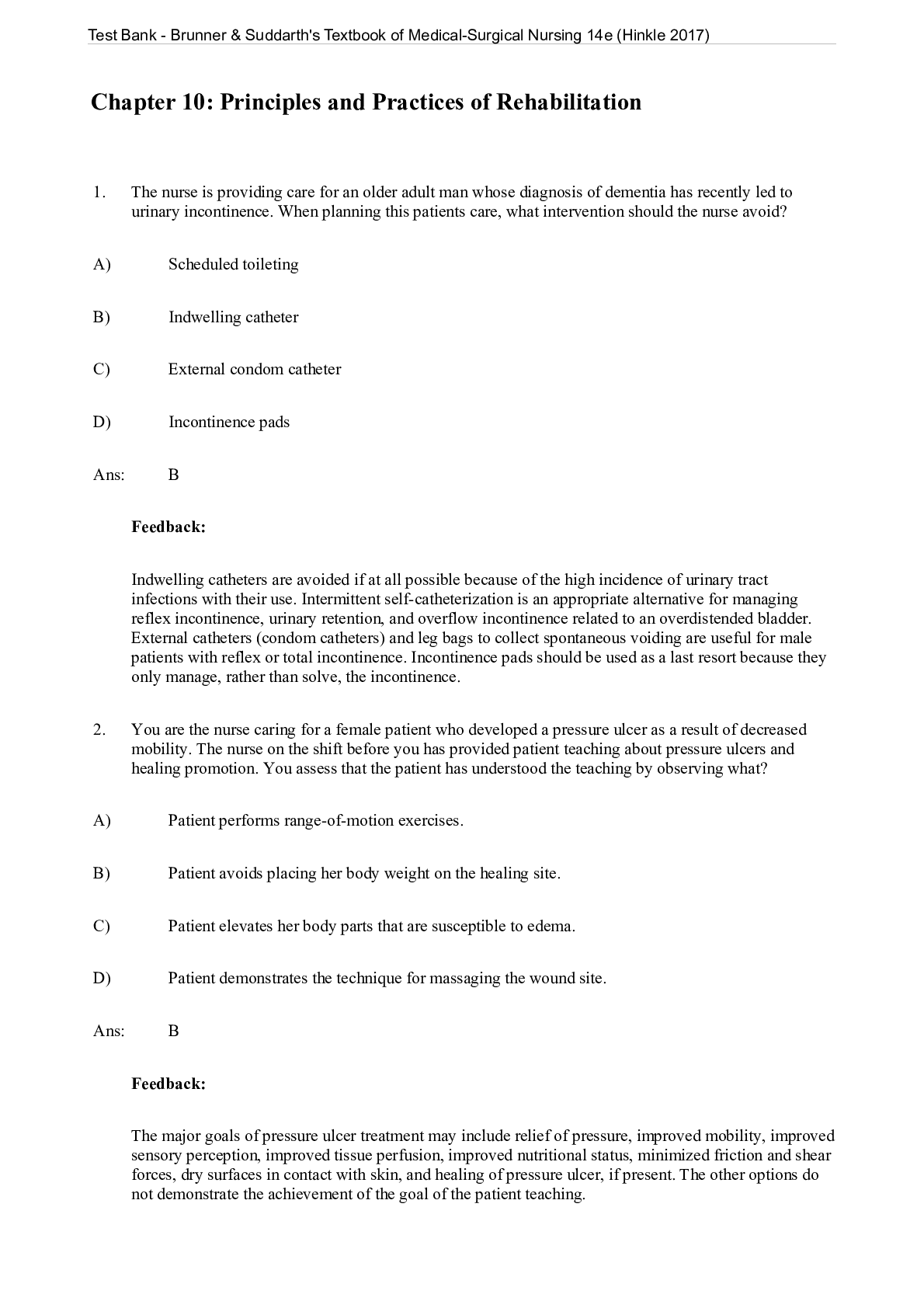
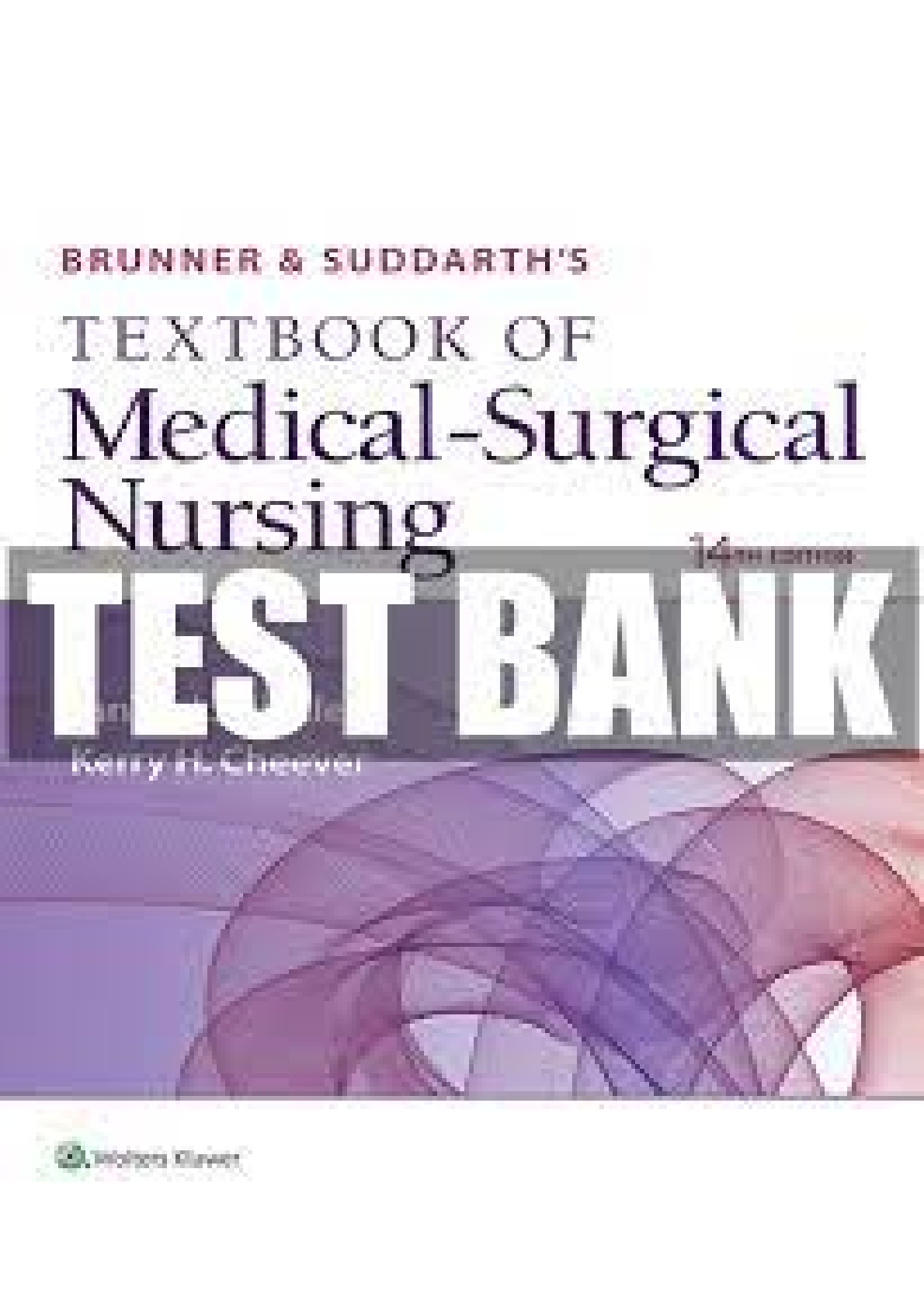
.png)
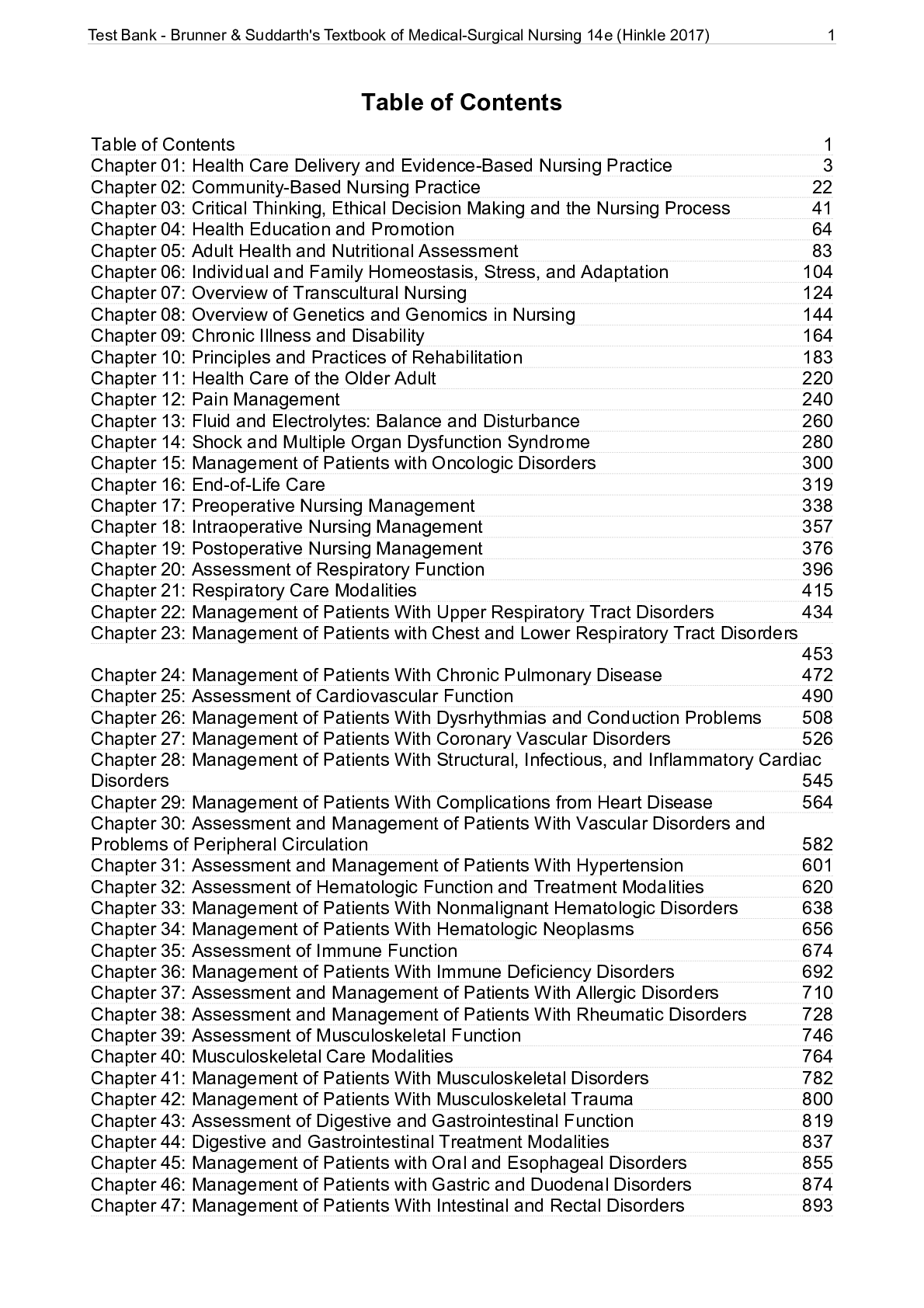
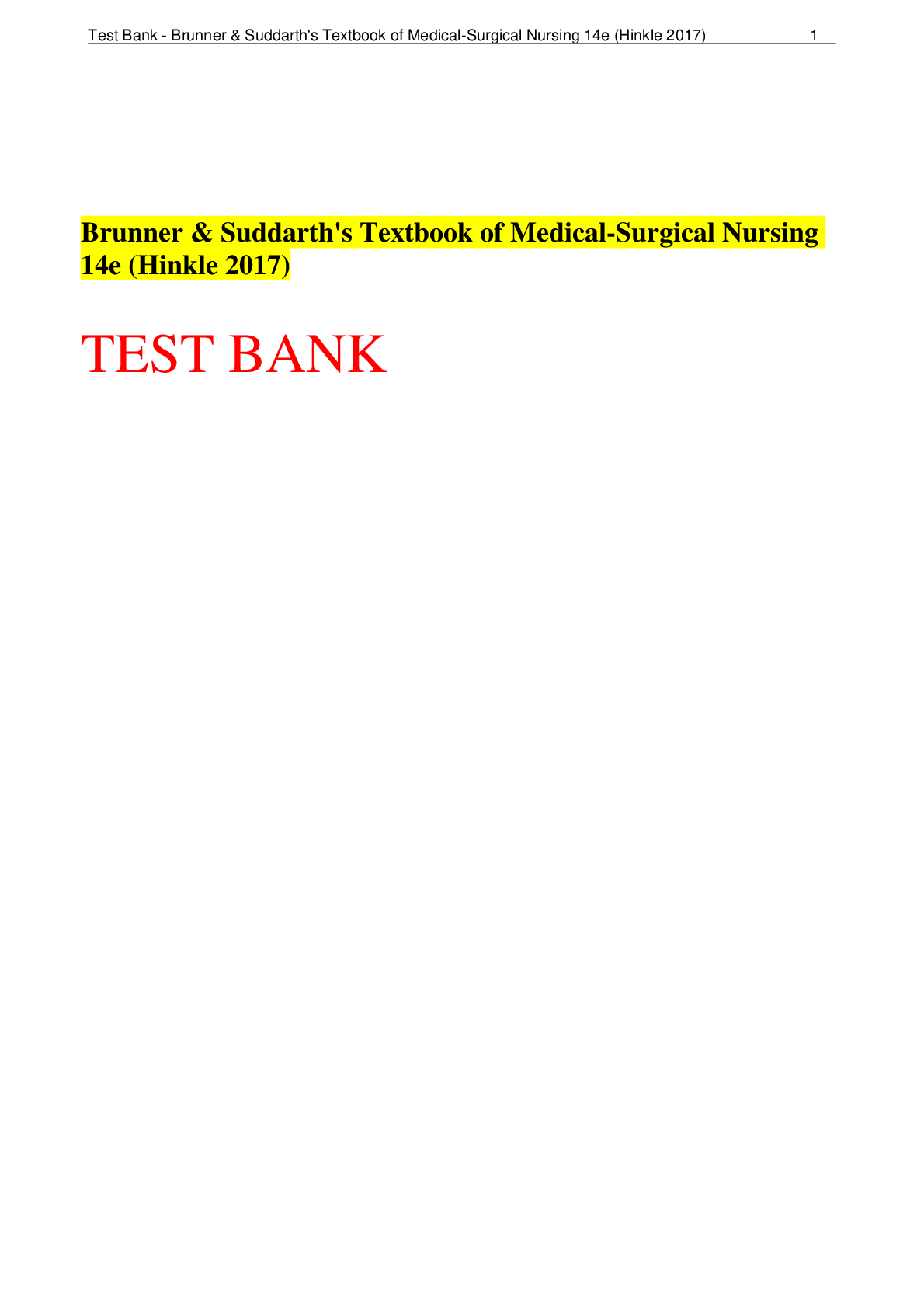
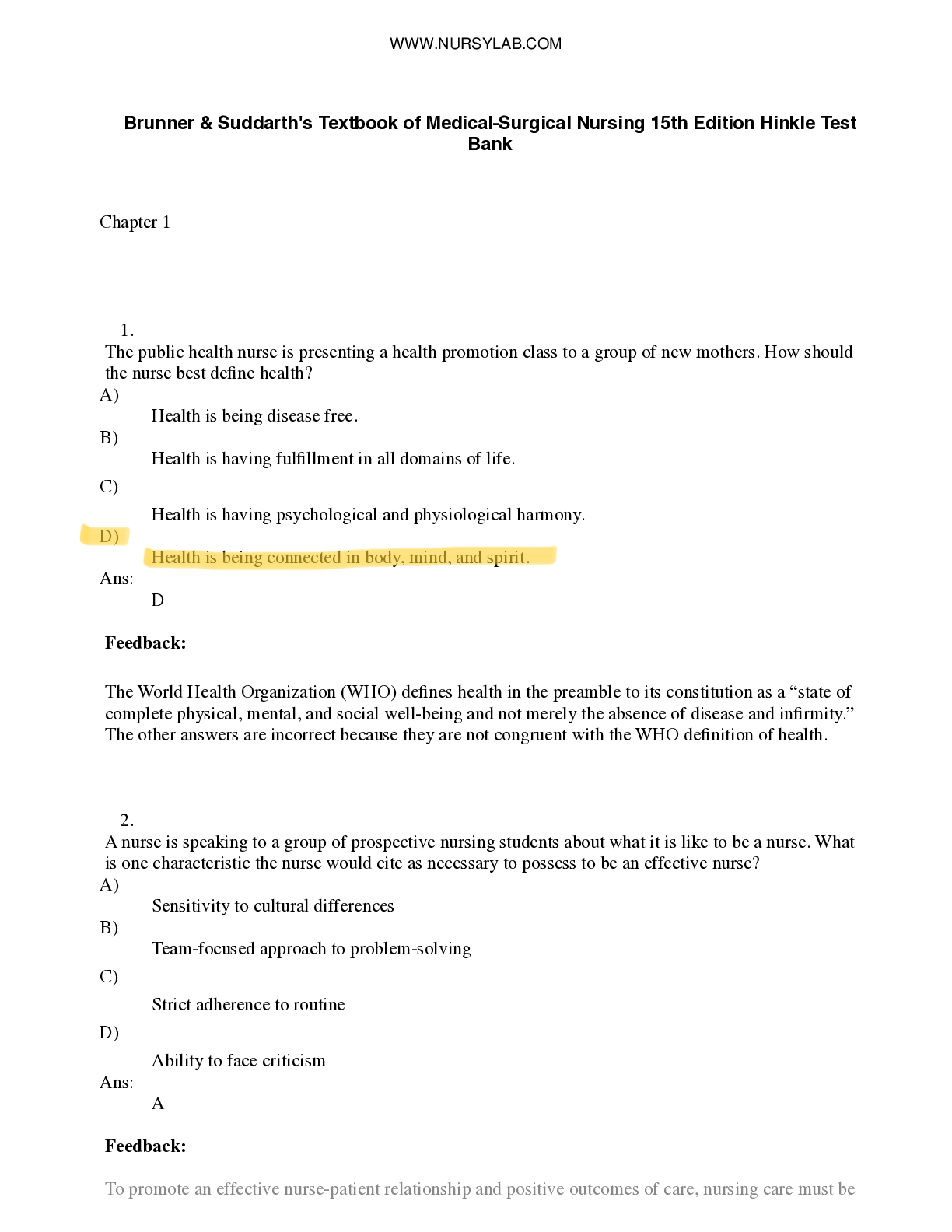

 Janice L Hinkle Test Bank All Chapters.png)

